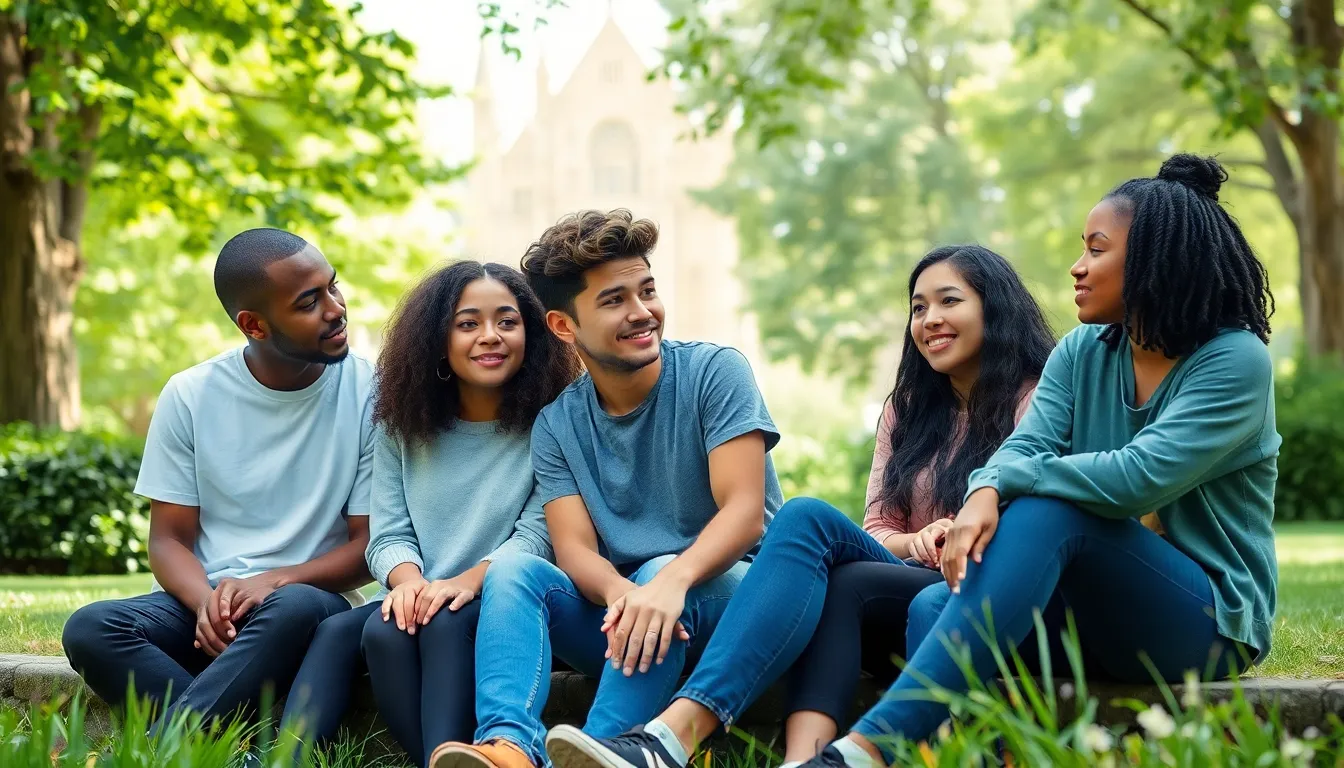Table of Contents
ToggleEvery year, World Teen Mental Health Day rolls around like a friendly reminder that teens deserve more than just TikTok dances and late-night pizza. It’s a day to shine a light on the mental health struggles that often go unnoticed. With the pressures of social media, academic expectations, and the rollercoaster of adolescence, it’s no wonder teens sometimes feel like they’re juggling flaming torches while riding a unicycle.
This day isn’t just about raising awareness; it’s a call to action for parents, educators, and friends to step up and support the mental well-being of the younger generation. By fostering open conversations and breaking down stigmas, they can help create a world where teens feel empowered to speak up about their feelings. So, let’s dive into the importance of this day and explore how everyone can contribute to a healthier mindset for our future leaders.
Understanding World Teen Mental Health Day
World Teen Mental Health Day raises awareness about mental health issues among adolescents. This observance promotes conversations and initiatives that support teenagers navigating their emotional well-being.
History and Significance
World Teen Mental Health Day originated to address the increasing mental health issues faced by teenagers. Established as an annual event, it highlights the challenges related to social media, peer pressure, and academic stress. This day serves as a platform for awareness campaigns that inform parents, educators, and communities about the urgent need for mental health support. Over the years, the observance has gained traction globally, with various organizations participating to spread knowledge and reduce stigma surrounding mental health concerns.
Key Themes and Objectives
Key themes of World Teen Mental Health Day include empathy, understanding, and support for teenagers. Its objectives focus on encouraging open discussions and providing resources for mental health education. Addressing issues like anxiety and depression forms part of the day’s mission. The initiative aims to teach coping strategies that empower teens to manage their emotional challenges. Overall, community involvement plays a vital role in reinforcing the importance of mental well-being within adolescent populations.
Impact on Teen Mental Health

Teen mental health significantly influences overall well-being and life outcomes. Increasing awareness about these issues plays a crucial role in fostering support for adolescents.
Statistics and Trends
Data indicates that nearly 20% of teens experience mental health disorders, with anxiety and depression ranking among the most prevalent. A report from the National Alliance on Mental Illness shows that suicide ranks as the second leading cause of death among teens aged 15 to 24. Moreover, surveys reveal that 40% of adolescents feel persistently sad or hopeless. Mental health challenges increase among teens due to factors such as social media usage and academic pressures. Trends also show that the COVID-19 pandemic exacerbated emotional distress, leading to higher rates of anxiety and depressive symptoms among this age group.
Common Mental Health Issues Among Teens
Common mental health issues affecting teens include anxiety disorders, mood disorders, and behavioral problems. Anxiety disorders manifest through symptoms like excessive worry and panic attacks. Depression often presents with persistent sadness, irritability, and disengagement from previously enjoyed activities. Additionally, attention-deficit/hyperactivity disorder (ADHD) affects academic performance and self-esteem, while eating disorders have risen due to societal pressures regarding body image. Each of these issues requires attention, as early intervention can lead to improved outcomes. Recognizing symptoms and facilitating supportive environments enhances the overall mental health landscape for teenagers.
Activities and Observances
World Teen Mental Health Day includes various activities and observances aimed at raising awareness and supporting adolescents’ mental health. Engaging communities and teenagers remains a priority.
Global Celebrations
Global celebrations feature events and activities that promote mental health education and awareness. Countries around the world organize seminars, workshops, and online discussions to address the mental health challenges experienced by teens. These events encourage participation from schools, NGOs, and youth organizations. Social media campaigns amplify the message, reaching millions of teenagers. Posts sharing personal stories foster connection and understanding, helping reduce stigma. Many countries partner with mental health professionals to provide resources and support during these celebrations. Recognizing diverse cultural perspectives on mental health enriches the conversation and promotes inclusivity.
Community Initiatives
Community initiatives focus on creating supportive environments for adolescents. Local organizations often conduct awareness programs and mental health workshops tailored for teens. School-based programs implement peer support systems, relying on positive relationships among students. Teen-focused counseling services provide accessible mental health resources, addressing anxiety, depression, and other challenges. Public health campaigns encourage families to engage in open dialogues about mental health, emphasizing its importance. Communities also organize recreational activities, such as sports and art, promoting connection and mental well-being. Partnering with local businesses helps fund these initiatives, ensuring sustainability and broader outreach.
Resources for Teens and Parents
Accessing the right resources can significantly improve mental health for both teens and parents. Numerous organizations provide valuable support and information.
Support Systems
Various support systems exist to assist teens experiencing mental health challenges. Hotlines offer confidential help 24/7, ensuring immediate assistance. School counselors provide essential guidance, allowing students to discuss their feelings in a safe environment. Peer support groups foster connection among teens facing similar issues, promoting empathy and understanding. Parents can also join support groups to share experiences and learn effective strategies for handling mental health concerns. Community health services provide counseling options and programs designed specifically for adolescents. Utilizing these resources helps in building a stronger support network for mental well-being.
Educational Programs
Educational programs play a crucial role in raising awareness about mental health. Schools often implement mental health curricula that teach students about emotional health, coping mechanisms, and available resources. Workshops on anxiety and depression help students recognize symptoms in themselves and peers. Parents benefit from educational sessions that provide tools to assist their children effectively. Organizations like NAMI and Mental Health America offer online resources and programs tailored to specific age groups, enhancing understanding of mental health issues. Engaging in these programs encourages open discussions and reduces the stigma surrounding mental health, ultimately promoting healthier lifestyles for everyone involved.
World Teen Mental Health Day serves as a crucial platform for addressing the mental health challenges faced by adolescents today. By fostering empathy and understanding within communities, it encourages open conversations that can significantly reduce stigma. The collective efforts of parents, educators, and organizations play a vital role in supporting teens as they navigate these turbulent years.
As awareness grows, the importance of accessible resources and supportive environments becomes increasingly clear. Engaging in proactive measures not only enhances individual well-being but also contributes to a healthier society. Together, everyone can make a meaningful impact on the mental health landscape for the next generation.




